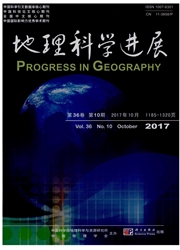

 中文摘要:
中文摘要:
基于居民住房消费行为的经济模型,运用GIS和计量统计等方法,梳理了家庭在城市内部进行住房消费决策过程中的空间权衡模式,并依据2009年调研问卷数据对北京市居民住宅消费决策的行为特征进行了实证研究,着重分析了收入和住房产权对家庭住房消费行为的差异性及其暗含的制度性与结构性因素。结论显示:在制度转型和职住空间重构背景下,高收入家庭在择居时为减少通勤时间愿意支付的住房成本高于中等收入家庭;中等收入家庭看重住房成本,择居受到通勤成本的影响较小。拥有经济适用房产权和单位房的家庭为减少通勤时间愿意支付更高的住房成本,而商品房家庭在择居时倾向于选择住房成本较低的住宅。在通勤时间和住房面积的权衡中,经济适用房居民对通勤时间的变化相比公房和商品房居民更为敏感。
 英文摘要:
英文摘要:
During the past two decades Chinese cities have experienced rapid urbanization process and dramatic rising of job and residential mobility. Recent literatures have paid attention to spatial features of home-work separation and residential relocation choices in transitional Chinese cities. Nonetheless, research on this issue has been limited by the lack of systematic data - especially large scale micro-survey data, on residents' social behaviors as well as other related aspects. In this paper, based on a multi-time survey datasets conducted from 10000 residents in 2009, we establish a mono-centric city' s household residential location demand function model to quantitatively explore the evolution of urban residential housing consumption and its mechanism. Based on the analysis, we find that the balance between commuting costs and housing costs has become the core variable in the residential decision-making process. Other residents' properties, like income, all have significant influencing power on residents' relocation decisions. To be more specific, high-income families would like to pay higher housing costs to reduce commuting costs. Median-income families value housing costs and are less influenced by commuting costs, organization offered housing costs and commuting costs, unit housing residents and affordable housing residents are more inclined to pay higher housing costs to reduce commuting costs while commercial housing residents choose to live in houses with lower housing costs. The empirical results have verified the efficiency of the residents housing consumption in the transitional China and provided the information for future land and housing policy making.
 同期刊论文项目
同期刊论文项目
 同项目期刊论文
同项目期刊论文
 Spatio-temporal Analysis of Urban Spatial Interaction in Globalizing China—A Case Study of Beijing-S
Spatio-temporal Analysis of Urban Spatial Interaction in Globalizing China—A Case Study of Beijing-S Spatiotemporal evolution of China's railway network in the 20th century: An accessibility approach (
Spatiotemporal evolution of China's railway network in the 20th century: An accessibility approach ( Exploring the network structure and nodal centrality of China’s air transport network: A complex net
Exploring the network structure and nodal centrality of China’s air transport network: A complex net 期刊信息
期刊信息
